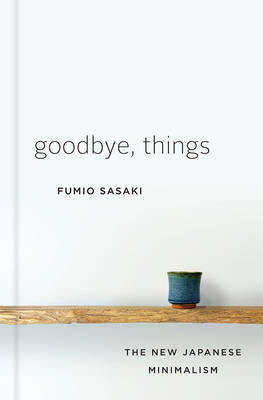
Fumio Sasaki is not an enlightened minimalism expert or organizing guru like Marie Kondo-he's just a regular guy who was stressed out and constantly comparing himself to others, until one day he decided to change his life by saying goodbye to everything he didn't absolutely need. The effects were remarkable: Sasaki gained true freedom, new focus, and a real sense of gratitude for everything around him. In Goodbye, Things Sasaki modestly shares his personal minimalist experience, offering specific tips on the minimizing process and revealing how the new minimalist movement can not only transform your space but truly enrich your life. The benefits of a minimalist life can be realized by anyone, and Sasaki's humble vision of true happiness will open your eyes to minimalism's potential.
- ISBN10 0393609030
- ISBN13 9780393609035
- Publish Date 12 May 2017 (first published 11 April 2017)
- Publish Status Active
- Publish Country US
- Imprint WW Norton & Co
- Format Hardcover
- Pages 272
- Language English
Reviews


lex6819

mercurial

Joséphine
"This spring, I moved into a new apartment. I didn’t do any packing beforehand and yet it only took thirty minutes to take everything out of my home, including the time it took to remove the light fixtures and unplug the washing machine." (p.162)On several other occasions, he repeats how he downsized to a smaller apartment, and how simple it was. He also dwells a lot on the simplicity of Apple products. So yeah, Goodbye, Things could've been two-thirds as long.
"After going minimalist, I moved for the first time in a decade. It was from Nakameguro to an area called Fudomae, not too far away, and the packing (without a single cardboard box, mind you), the move itself, and unpacking all took but an hour and a half. I kid you not." (p.176)
"Finally moved for the first time in a decade (it took thirty minutes but it shouldn’t take more than twenty minutes next time)" (p.194)
Nonetheless, the inclusion of practical steps towards minimalism, makes Goodbye, Things a more than worthwhile read. I also enjoyed the discussions on how we we attach our self-worth to possessions and look to objects to shape our identities. Plus, I liked how Sasaki made it clear that he values experiences, and why, which is sure to lead any reader to healthy introspection.
